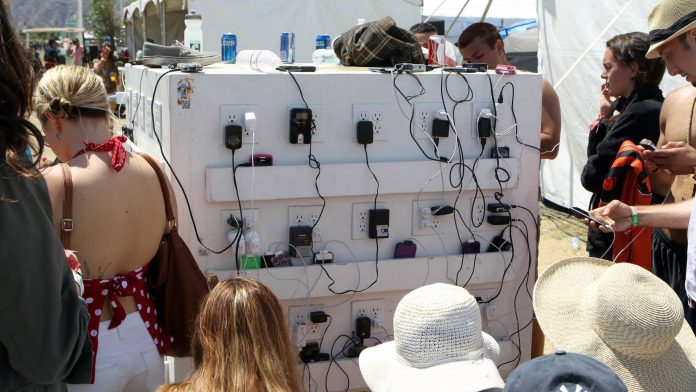[ad_1]
A cell phone charging station is seen in Indio, California.
Karl Walter | Getty Images
The FBI recently warned consumers against using free public charging stations, saying crooks have managed to hijack public chargers that can infect devices with malware, or software that can give hackers access to your phone, tablet or computer.
“Avoid using free charging stations in airports, hotels or shopping centers,” a tweet from the FBI’s Denver field office said. “Bad actors have figured out ways to use public USB ports to introduce malware and monitoring software onto devices. Carry your own charger and USB cord and use an electrical outlet instead.”
The FBI offers similar guidance on its website to avoid public chargers. The bulletin didn’t point to any recent instances of consumer harm from juice jacking. The FBI’s Denver field office said the message was meant as an advisory, and that there was no specific case that prompted it.
The Federal Communications Commission has also warned about “juice jacking,” as the malware loading scheme is known, since 2021.
Consumer devices with compromised USB cables can be hijacked through software that can then siphon off usernames and passwords, the FCC warned at the time. The commission told consumers to avoid those public stations.
[ad_2]
Source link



